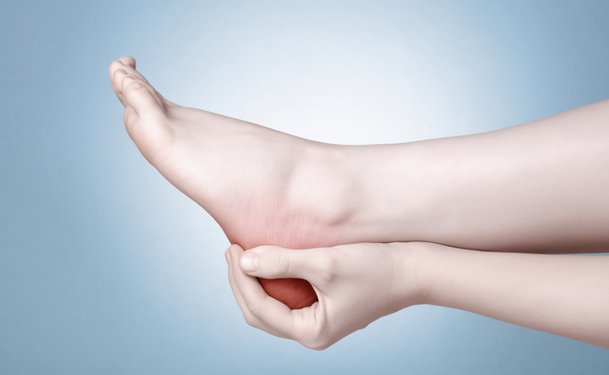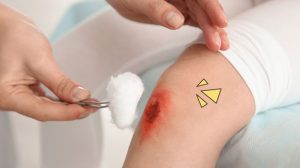When we are not feeling well, doctors will definitely advise us to take a rest. One way to do it is to lie in bed. But it turns out that lying down for too long also carries health risks, namely pressure sores or decubitus ulcers. This chronic wound requires proper treatment to avoid more dangerous complications.
What Is Decubitus?
Decubitus ulcers are the medical term for sores that occur due to constant and prolonged pressure on the skin. Decubitus is also known as pressure ulcers. These wounds can lead to various serious health problems.
Decubitus develops when the blood supply to a certain area of the body is blocked because of lengthy and excessive pressure on that area. As a result, the skin tissue will be damaged and die, causing an open crater-like wound called an ulcer to appear. Pressure ulcers usually occur on prominent bony parts of the body, such as the elbows, hips, heels, back, buttocks, and back of the head.
These sores are often found among older people who must be bedridden due to their condition. For example, older people who have had a stroke so they have to spend more time lying down or sitting because their movement is limited. This chronic wound is a serious medical problem. Therefore, if there are any symptoms that indicate pressure sores, you should immediately consult a doctor for a definitive diagnosis.
Various Causes of Decubitus and Their Degrees
The cause of decubitus is damage to the skin tissue as a result of reduced blood supply to the skin. The blood supply problem arises due to excessive pressures because the position of the body does not change for extended periods of time. In addition, friction on the skin can trigger the appearance of pressure sores.
There are a number of factors that increase a person’s risk of developing decubitus, including:
- Lack of nutrition
- Skin is too moist
- Restriction of movement due to illness or old age
- Low weight
- Dehydration
- Diabetes
The severity of decubitus is generally divided into four stages:
- Stage 1: the skin is intact and the wound appears red.
- Stage 2: the skin tears and the wound begins to look like a shallow crater.
- Stage 3: the wound is deeper and the base looks yellow due to tissue death.
- Stage 4: severe skin lesions, sometimes visible on bones, muscles or tendons
How to Prevent It
Pressure sores are chronic wounds that require long-term treatment. Therefore, it would be much better if you try to prevent it in the first place, especially if you are at risk of developing these sores. Here are some recommended preventative measures:
Reduces pressure on the skin
- Change positions and move around as often as possible
- If you cannot move, ask a nurse or a family member to help you change positions
- Change positions at least every two hours
- Use special mattresses and pillows designed to reduce pressure
- Do not drag your feet or elbows when lying in bed or sitting in a wheelchair
Skin care
- Make sure the skin is always dry and clean
- Avoid perfumed soaps, as they tend to overdry the skin
- Use moisturizer after shower
- Avoid using talc because it can dry out the skin’s natural oils
General tips
- Make sure sheets are soft and don’t wrinkle when you lie down
- Use cotton sheets or soft fabrics
- Maintain a balanced diet
- Drink at least 2 litres of water a day
- Tell your doctor or nurse immediately if you experience any changes in your skin or if your skin feels uncomfortable
How to Treat It
When a person already has a decubitus, treatment should be performed as soon as possible. He/she needs to consult a doctor and ask for a diagnosis that is important to determine the severity or stage of the sore. By knowing the severity, treatment can be carried out appropriately.
If the sore is still in its early stages, the doctor will usually advise the patient to try to reduce the pressure on the affected area as much as possible. For example, by changing positions every two hours or not putting pressure on this area of the body for the wound to heal.
Additionally, patients may be advised to use a special mattress to avoid excessive pressure on the skin surface. This mattress usually contains a mixture of liquid and air. Some studies show that pressure sores are reduced after patients use this type of mattress for 2 weeks.
When it comes to treating an open wound due to damaged skin, you may need a bandage to keep the area clean and moist so it heals faster. Bandages can also prevent wounds from becoming infected with bacteria if used correctly. In the meantime, if the decubitus wound is severe, the doctor may recommend surgery to remove dead cells so that the cells can regenerate and speed up recovery.
The Role of Medical Personnel
Medical personnel play an important role in the prevention and treatment of decubitus ulcers. If a patient is at risk for the chronic sores, the doctor will definitely educate and counsel the patient and their family members to be aware of the possibility of developing pressure sores. Caregivers or specialist nurses generally have received training on the risk and treatment of pressure ulcers. They can help patients prevent pressure sores with the knowledge gained during the training. If there are signs and symptoms of pressure sores, they can also help provide the necessary care in the patient’s home.
The Role of Family
The role of the family is no less important for patients who are at risk of developing pressure ulcers. Especially if the patients cannot move due to age or illness. Families should actively try to prevent the development of pressure sores by helping the patients to move and change positions as often as possible. Also, the family should tell the doctor or nurse immediately if they notice any changes in the patients’ skin. Getting their skin checked as soon as possible will help prevent pressure sores from getting worse.
For doctor visit, doctor tele-consultations and home nursing services to tend for decubitus, please contact Kavacare Support.



